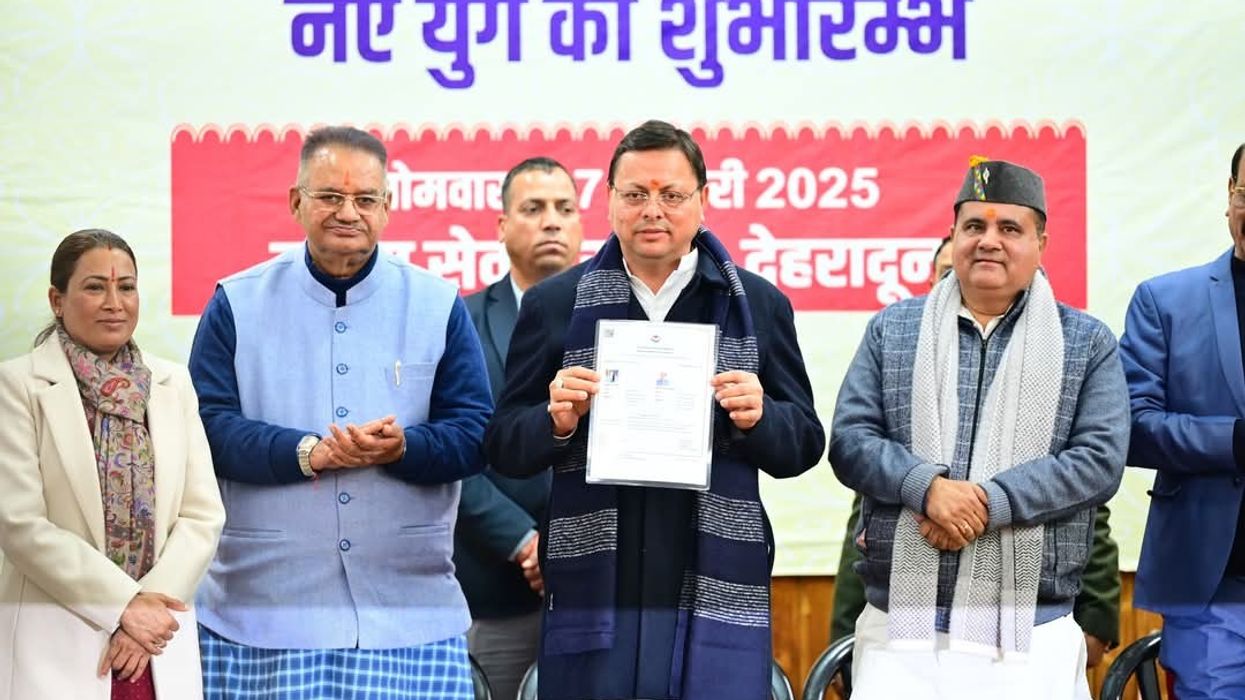THE INDIAN state of Uttarakhand has begun implementing a common civil code to replace religious laws, a move that has raised concerns among minority Muslims about a possible nationwide rollout by the ruling Bharatiya Janata Party (BJP).
Indian prime minister Narendra Modi’s BJP has long advocated for a Uniform Civil Code (UCC) to standardise laws on marriage, divorce, and inheritance across India. On Monday, Uttarakhand became the second Indian state to enact such a law.
Goa, which had a common civil code from its time as a Portuguese colony, was previously the only Indian state with such a system.
Supporters argue that the UCC ensures equal rights for Muslim women by ending polygamy, setting equal property inheritance rights for sons and daughters, and requiring divorce cases to be settled in civil courts. The law also mandates registration of live-in heterosexual relationships, with non-compliance leading to a fine or up to three months in jail.
Uttarakhand state chief minister Pushkar Singh Dhami said the law promotes "equality." Speaking at a press conference, he stated, "This code is not against any sect or religion. Through this, a way has been found to get rid of evil practices in society."
The BJP has pushed for a nationwide common civil code, but the proposal has drawn opposition, particularly from Muslim groups who see it as an infringement on religious freedoms.
Opposition and concerns
Muslim leaders say the UCC interferes with Islamic laws on marriage, divorce, and inheritance.
"This is an attack on our identity," Asma Zehra, president of the All India Muslim Women Association, told AFP.
She said the law would create "huge challenges" for Muslim women by causing conflicts between state laws and religious practices.
"This law is totally biased against Muslims and is a manifestation of Islamophobia," she added.
Some critics have also raised concerns about provisions requiring live-in relationships to be registered.
"It is absolutely contrary to the right to privacy and personal autonomy," senior lawyer Geeta Luthra told AFP. She said the state should not interfere in consensual personal relationships.
The Uttarakhand assembly passed the UCC bill in February last year.
(With inputs from AFP)




